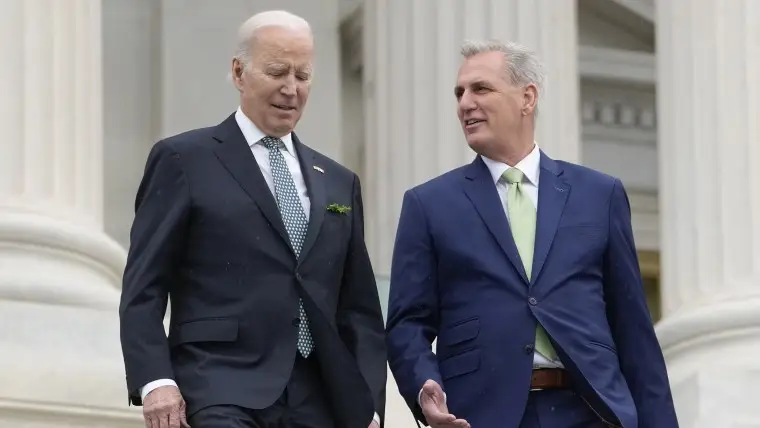
U.S. still risks breaching debt limit on June 1, Treasury Secretary warns in new letter
WASHINGTON — Treasury Secretary Janet Yellen said Monday that it is "highly likely" the U.S. will run out of money to pay its bills as early as June 1 if the debt ceiling battle isn't resolved by then.
The updated timeline comes after Yellen on May 15 set a June 1 deadline for the U.S. to extend the borrowing limit or risk a first-ever default on the country's debt, which she has repeatedly warned would have disastrous economic implications.
"With an additional week of information now available," Yellen wrote in a letter to House Speaker Kevin McCarthy, "I am writing to note that we estimate that it is highly likely that Treasury will no longer be able to satisfy all of the government’s obligations if Congress has not acted to raise or suspend the debt limit by early June, and potentially as early as June 1."
Yellen's new letter comes just ahead of a high-stakes meeting between Democratic President Joe Biden and McCarthy, who have been at odds on how to resolve the standoff. They have enlisted staff and allies to help negotiate a debt limit bill alongside a budget agreement that satisfies both parties.
Clock is ticking on a bipartisan compromise over debt limit
May 22, 202302:10The core of the dispute is how much the federal government should spend in the next fiscal year, with House Republicans demanding cuts and other changes to budget policy changes that Democrats are reluctant to accept. Republicans control the House but any deal would need approval from the Democratic-led Senate.
The U.S. hit the statutory debt limit in January and has since been using "extraordinary measures" to pay the bills. The Treasury Department has consistently given a timeline of early June for Congress to act or risk breaching the debt ceiling. The exact date has been adjusted along the way based on tax receipts, as is customary when setting the deadline.
"We have learned from past debt limit impasses that waiting until the last minute to suspend or increase the debt limit can cause serious harm to business and consumer confidence, raise short-term borrowing costs for taxpayers, and negatively impact the credit rating of the United States," Yellen wrote in her letter Monday.







